A sudden stopping of economic activity, the huge resultant fiscal and financial policy stimulus measures and a cautious reopening of national economies have attracted the main attention of economic decision-makers and the media. An acute crisis requires decision-makers to act quickly. At such a time, they usually resort to well-known measures, and reflecting on the difficult long-term structural problems of the economy is often forgotten – at least in the short run. Now, however, is the right time to take a look at the more distant horizon, to place the coronavirus crisis in a broader context and assess it in relation to the identified megatrends.
The global pandemic is the most recent example of the “metacrisis” that has been brewing for years. Its other manifestations include the culmination of environmental issues, an increase in inequality, crises in the financial systems, an increase in lifestyle diseases and mental health issues, the rise of populist leaders, extremist movements and terrorism, problems of representative democracy and siloed public government and international institutions becoming stagnant.
All of the manifestations of the metacrisis reflect a “governance crisis” caused by people’s old mindsets and operating models and society’s traditional institutions and structures no longer being sufficient to manage the increasingly specialist and complex day-to-day lives, economy and society. Scholars talk about a “complexity gap” that has emerged in the human mind and society (Kegan and Lahey 2009; Casti 2012). The development of the economy and society cannot be sustainable before this gap is closed. This requires adapting the operating models and structures of the economy and society and people’s skills and views of the world to an increasingly complex and uncertain world. This also requires a critical review of the current economic model. We discussed the metacrisis, complexity gap and resilience Resilience The ability of people and communities to function in changing circumstances, face up to disturbances and crises, and recover from them. For example, the capability of society to recover from war and the ability of nature to return the balance of ecosystems. Open term page Resilience of society in more detail in a previous article in the series.
The need for reforming the economic system was already being discussed around the world before the coronavirus crisis (for example, Financial Times and the World Economic Forum 2019). In fact, Sitra’s most recent megatrend update emphasises the growing pressure on the economy to change, particularly as a result of increasing inequality and the ecological sustainability crisis. There has been increasing mutual understanding of the need for rethinking the economy, but the insights into the extent of the reform have varied.
In this article, we identify three key tensions associated with the transformation phase of economic thinking that were present before the coronavirus crisis but which are now being exacerbated by the crisis. 1) The vulnerability of the global economy as revealed by the crisis has increased the need for strengthening the resilience of societies and national economies and the diversity of economic activity. 2) Economic diversity requires a cultural change from the domination of the market towards a more communal mixed economy in which the roles of the public, private and third sectors are defined through practical co-operation. 3) The coronavirus crisis has highlighted the need to make the transition from a sustainable economy to a restorative economy in a way that simultaneously strengthens the state of the environment, well-being and the fair distribution of economic resources.
Resilience of the economy vs maximisation of efficiency and growth
The key objective of the mass production paradigm that has been dominating the global economy for the last century has been to increase the efficiency of production processes and, as a result, achieve growth in productivity. Additional efficiency has been pursued particularly by increasing the distribution of labour in the production process and benefits of scale. Ultimately, this development has led to the globalisation and geographical specialisation of production processes.
The global distribution of labour and increasing efficiency of the world economy have provided a lot of benefits to consumers and emerging countries’ employees, millions of whom it has lifted out of poverty. At the same time, however, it has contributed to the centralisation of wealth and an increase in inequality in advanced societies. Extremely fine-tuned production chains have also made the world economy more vulnerable. The coronavirus crisis exposed the related risks when, for example, the reserve stocks of healthcare supplies were not at a sufficient level and alternative supply channels could not be found fast enough.
The increasingly interconnected and uncertain world is difficult to foresee. Conventional economic thinking does not sufficiently acknowledge the systemic and complex nature of the economy and its interdependencies and feedbacks. Succeeding in the increasingly complex world requires making resilience and the capacity for adaptation and renewal alongside the maximisation of efficiency and growth key goals of the economy and society. In fact, a new balance between efficiency, capacity for renewal and resilience should be found in economic and financial policy. The OECD calls for a similar reform of economic thinking.
The players in the complex and uncertain economy must have adequate freedoms, options and capacities so that they can adapt to unexpected problems and crises. Organisational innovations that increase adaptability include different forms of network co-operation, business ecosystems and the platform economy, as well as joint development, crowdsourcing and open innovations.
Companies that aim to enhance their resilience and operational integrity may need to compromise the maximisation of return on equity, build larger financial buffers and decentralise their production and supply chains. Improving the resilience of the national economy on the whole, on the other hand, requires developing the diversity of economic activity and decision-making. The global recession that began in 2008 already gave us a foretaste of this. Sweden, a country with a more diverse economic structure, survived it far better than Finland.
When an economic crisis hits, it is desirable that new evolving business, businesses and business ecosystems emerge to replace receding business and businesses. Thus, the resilience of the national economy does not require all businesses to survive crises. Also, not all functions within a single business need to be adaptable. For example, in the food and catering industry, those companies that have been able to adapt their business models to better suit the exceptional situation by developing takeaway or home delivery services and business co-operation built around them have survived the coronavirus crisis the best.
The coronavirus crisis has not necessarily pushed the development of the global economy in a more diverse and resilient direction. American and Chinese platform companies that are among the world’s biggest companies (for example, Facebook, Amazon, Google, Alibaba and Tencent) have been the winners during the corona crisis. At an OECD seminar, experts were concerned that the coronavirus crisis and growth in the demand for digital services have provided these companies with an opportunity to increase their market power further by acquiring their weaker competitors or conquering additional market share. Competition policy has not been able to respond to the challenges imposed by the digital economy in recent years anymore, with the authorities compromising the goal of efficient competition as a result of the low prices and extensive offers provided by the platform giants to consumers.
In future, economic activity can increasingly focus on geographically specialised ecosystems. Alongside ensuring the operational reliability of highly specialised production processes, geographical concentration is supported by the effective co-ordination and communication they require, where vicinity is still a major asset. The demands for diverse expertise and sufficient vicinity highlight the competitiveness of cities as the locations for highly specialised business ecosystems. They also make cities an apt operating environment for solving the wicked problems of society.
Market orientation vs inter-sectoral co-operation
The neoliberal “Washington Consensus” that dominated economic thinking for a long time was rooted in the idea that the superiority of the market drives the economy. According to this economic doctrine, the market is afforded its influence through measures such as public-sector budgetary discipline, tax reforms, deregulation of the financial market and foreign investments and competition, promotion of free trade, privatisation and securing ownership protection, among other things. After the 2008 financial crisis, this model has been critically reviewed, even by the OECD.
The global pandemic has continued the trend of reinforcing the role of the public sector in the economy that started after the financial crisis. The role of government in controlling the economy and as a social force for change has grown stronger in many countries when they have had to tighten their grip on economic regulation under the exceptional conditions. During the coronavirus crisis, we have found that the economy can be guided considerably stronger than usual through political decisions. At the same time, the temptation to adopt protectionist measures to favour domestic businesses has increased. The crisis has also awakened us to the realisation that the market and economy alone do not define the future of society.
Governments now have a crucial role to play in terms of building the post-coronavirus economic future. After all, the role of government is not only to fix the temporary market disruptions caused by a crisis, but to also reform the economy and strengthen competitiveness, protecting the interests of society as a whole. Across the world, huge support and stimulus packages have been created to support the businesses and national economies hit by the crisis. Finland, too, is investing in green recovery, aiming to reform the structures of the economy in a more sustainable direction at the same time. Even though the public sector has taken a stronger role in guiding the economy and the aim is to support a more sustainable future, the tasks and operating models of the public sector have not yet reformed to a significant extent. To allow the public sector to extend its influence, there needs to be a new vision of what the roles of the private, public and third sectors in society should be.
Instead of emphasising the efficiency and superiority of the market, the economy can be seen as being comprised of different public, private and third sector operators, with their relative significance and roles varying depending on the operating environment and their respective strengths. Here, competitive markets can be seen as an important, but not the only, way of organising economic activity. This kind of a “mixed economy” would therefore not generally prioritise any method of organising the economy over others. Could the new post-coronavirus crisis institutional balance be based on co-operation transcending sectoral and organisational boundaries and on a very practical, situation-specific distribution of work? The best combination of different organisational options for each situation can be found through co-operation. Here, the task of the public sector would be to promote the emergence of the best organisational combinations for each task.
Finding the new balance will require a more systemic approach from political actors. Ecosystem policy and mission-oriented innovation policy that pursues systemic changes, for example, increasingly shift the public sector’s measures from individual companies and R&D projects to the systems they form. In future, the public sector could increasingly function as a supporter and facilitator of co-operation networks and ecosystems comprised of different parties.
Sustainable vs restorative economy
The economy has played a very dominant role in the 21st-century value system. However, economic growth has been achieved at the expense of the environment, and wealth has been concentrated in the hands of a shrinking minority. The economic and environmental crises of the past few decades have led to greater discussion about the reform of the economic model as a whole. Now, the coronavirus crisis has further exposed the risks of the old paradigm that is based on maximising efficiency and growth and its associated structural problems and instead underlined the need to reform economic thinking.
The global pandemic has increased concern and responsibility for people’s well-being and their living environment in a new way. It has alerted many people to the shared fate of humankind and made them aware of the need for co-operation. Economic values have been forced into the background. The key question with regard to the future is how will we reform and guide the economy with measures that will simultaneously strengthen the state of the environment, well-being and the fair distribution of economic resources? (See, for example, Sitra’s Sustainable recovery measures for the coronashock working paper.) In reforming the economy, we are in fact facing a fundamental question: What should be the priority for the economy: growth, well-being or improving the state of the environment?
There has been a lot of talk about the goal of “decoupling” in the economic discussion in the past decade. This refers to removing the link between economic growth and the environmental damage it causes. However, we are already in a situation in which it is not sufficient to merely reduce negative environmental impacts, or the footprint. Besides the negative impacts of the economy on both the environment and people, it is increasingly important to pay attention to the positive impacts, or the handprint, of the economy.
In the post-coronavirus economic recovery, it is not enough that the economy in itself does well and reforms. We need a transition to a restorative economy. This means that the economy should both restore the damage (footprint) already caused and act as an active tool of change in reforming the vitality of people, communities and the environment, i.e. ecological and social capital (handprint). Ecological capital is comprised of natural resources and the quality of the environment, among other things, while social capital includes competence , shared values and norms, social networks and social trust, and the concept of what is known in German as “Bildung”.
The coronavirus crisis has shaken societies so deeply and from so many dimensions that it may also have changed some of the assumptions on which our conventional economic thinking and economic control measures are based. The coronavirus crisis has shown how the economy, work, health, well-being, the environment, integrity of societies, movement of people and goods, safety and international relations are all so inextricably linked. Some of the changes brought about by the crisis are short-term, but some of them will make up the “new normal”. Therefore, it is necessary to evaluate critically to what extent the lessons learned about the behaviour of the economy from previous crises can be relied on in the management and aftercare of the coronavirus crisis, and to what extent the pre-crisis economic models will work in the new post-coronavirus situation.
Reforms of the economy and its control measures often encounter “path dependencies”. This refers to a situation where the decisions made and the structures created in the past become too expensive, slow or difficult to remove. Also, previous investments – “sunk costs” – often make the decision-making required to reform the economy more difficult. The more that has been invested in something, the harder it is to accept the loss of the investments made. In reforming the economy, it is therefore important to try to avoid the problems of sunk costs and harmful path dependencies. An economy that develops and experiments with several options is more resilient than an economy that only invests in a few activities and operating models.
In spite of its extensive impacts, the coronavirus crisis is only a single manifestation of a social metacrisis, at the core of which is the unsustainability of the old economic system and the crisis of old thinking and operating models in an increasingly complex and uncertain world. Even though the coronavirus will be overcome some day, sustainable development and well-being in the long term are not possible without a reform of the current economic model. The change will not take place overnight; this is about a lengthy period of change. But crises like the coronavirus that change everything can help to encourage the seeds of change that have already been sown to flourish.
| These give rise to hope: |
| Shared fate – The global pandemic has awakened people to the shared fate of humankind and the need for co-operation, and provided hope for the development of international co-operation (for example, in the field of scientific pandemic research). |
| Realising the vulnerability of the current economic model – The coronavirus crisis has exposed the vulnerability of the economic model based on the efficiency of the market, the global distribution of work and the maximisation of profit. It has demonstrated the systemic nature of the economy and need for resilience, which could lead to a new kind of economic model. |
| Strengthening role of government – The coronavirus crisis has strengthened the grip of the public sector in controlling the economy. This gives hope that solutions can be found through joint decisions on the other global problems of our time, such as the environmental crisis and increasing inequality. |
| Green recovery – Both Finland and the EU have paid attention to how the post-coronavirus economy can be revived while promoting a structural change towards a green economy. This provides hope for the development of an economic structure that better responds to future challenges. |
| It is important to discuss these right now: |
| What second- and third-degree consequences will the coronavirus crisis have for the global economy and Finland’s national economy? |
| How can we find a new balance between the efficiency, capacity for renewal and resilience of the economy? |
| What roles will the public, private and third sector play in the post-coronavirus time, and in which direction do we want them to reform? |
| How will we get rid of the harmful path dependencies of the economy in post-coronavirus economic recovery and adaptation? |
Sources:
Casti, J. L. (2012). X-events: The collapse of everything. Harper Collins.
Keegan, R., & Lahey, L. (2009). Immunity to change: how to overcome it and unlock the potential in yourself and your organisation.
In addition, the article makes use of other sources linked directly from the text.


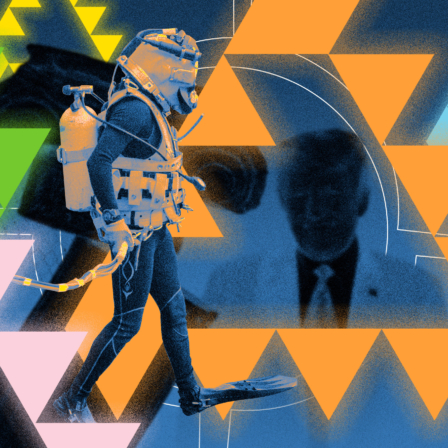
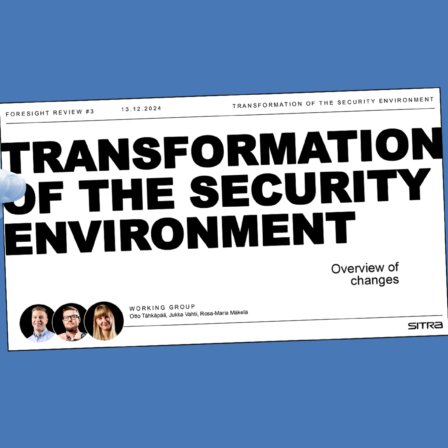
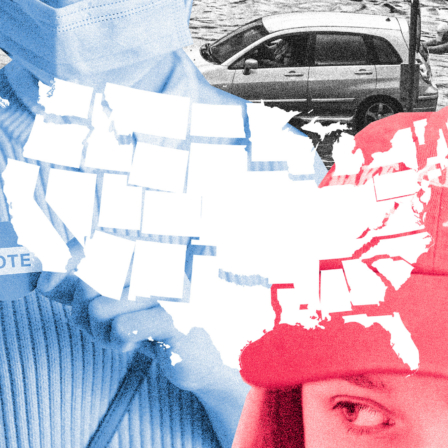
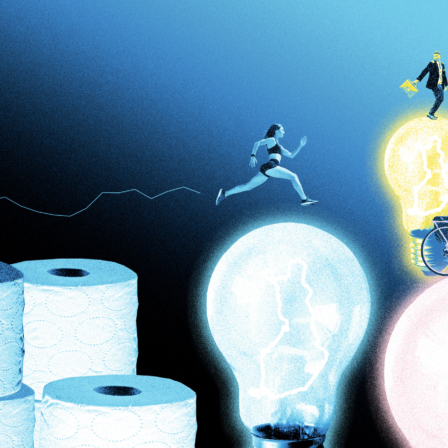

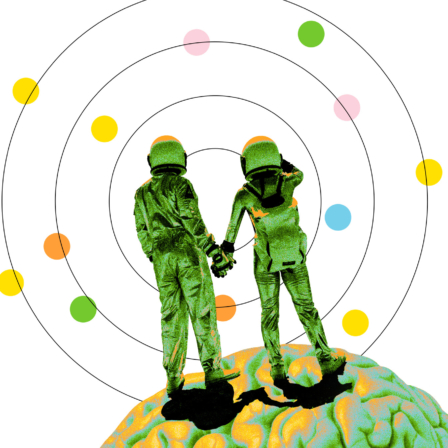





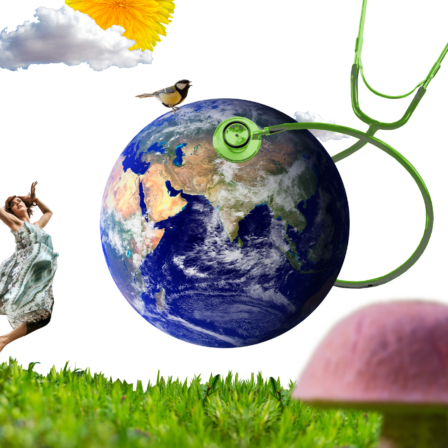



Recommended
Have some more.